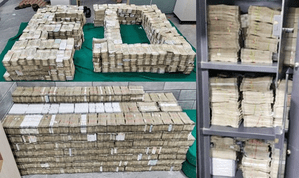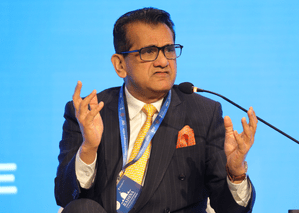
In another major swoop, the Directorate of Enforcement (ED) carried out raids at seven locations in Mumbai and Ahmedabad and seized proceeds of alleged crimes worth Rs 13.50 crore, an official said here on Saturday.
The seizure pertains to a case lodged on November 7 against the Nashik Merchant Cooperative (NAMCO) Bank, in Malegaon town of the Nashik district.
Following a complaint, the Malegaon Chavani Police Station had lodged an FIR last month on mystery deposits of huge money of more than Rs 100 crore in 14 newly-opened bank accounts at the NAMCO Bank.
The police FIR named the prime suspect as Siraj A. M. Harun Memon, who operates a hot and cold beverages agency, plus his accomplices who used “identity documents of various innocent persons (obtained by false promises / monetary considerations) to layer and transfer the proceeds of the crime”.
Later, the case, taken up by BJP ex-MP Kirit Somaiya as an alleged ‘Vote-Jihad’ matter, was probed by the ED as the suspicious transactions in multiple states came just weeks before the November 20 Maharashtra Assembly elections.
The ED probe found that at least five similar accounts were maintained with the Bank of Maharashtra, Nashik Branch.
The ED investigated the money trail of “debit transactions” made through various online banking channels from the 14 accounts at NAMCO Bank and the five accounts with BoM.
The startling outcome was that the funds from these accounts were transferred to 21 sole proprietary concerns through debit transactions, which also came under the ED’s radar.
A detailed analysis of the bank statements of the 21 sole proprietory concerns where the hundreds of crores of rupees of funds were transferred through online banking channels, and these in turn were further routed to various other firms/companies said to be fake accounts.
Subsequently, the analysis revealed that a huge amount of money was withdrawn in cash from these dummy accounts, including by Nagani Akram M. Shafi, and Vasim V. Bhesaniya.
The duo then distributed the cash to various entities through ‘angadiyas’ (traditional personal couriers) or ‘hawala’ operators in Ahmedabad, Surat and Mumbai.
The ED contended that the Bhesania-Shafi duo – later arrested for money-laundering charges – worked under instructions of one Mehmood Bhagad alias Challenger King.
Last month, the ED carried out around 25 searches in Ahmedabad, Surat, Nashik and Mumbai and laid its hands on bank balances of Rs 5.20 crore, plus incriminating documents, digital evidence, bank deposits and other deals, etc.











